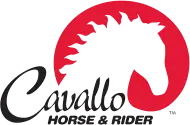Natural Horse Care

By Carole Herder
There are many great facilities out there promoting better equine health care. People are beginning to understand that shoes, small stables, bad diet and limited exercise are very detrimental to horses and if we want them to live longer and keep comfortable, we must change how we keep these noble and gracious animals.
One such facility is the Corona Equine Vista Center in Michigan. They offer holistic equine health care, focusing primarily on lameness rehab using their exemplary hoof care research. They have consultants, clinics and workshops to give you all the information you need and allow you to learn what they know.
Dr. Robert Bowker, along with his wife Dr. Barbara Gideon, established the center in 2008 to teach, practice, promote and research horse health through nutrition, hoof care, body work and lifestyle. Both veterinarians, they have many years of experience behind them and Dr. Bowker continues to teach and research across the globe. Check out their published articles showing a list of links regarding work and research done by them within the equine community. Part of their research includes the Wild Brumbies in Australia to see how feral horses can aid our improvement of keeping domestic horses. They are also studying in detail coffin bones, hoof walls and neurosensory perception (within the hoof). We at Cavallo were proudly part of an Australian study with PhD candidate Brian Hampson and DVM Chris Pollitt. We had a tracking collar on a Brumby named Ridgy Didge, following her to determine the effects of terrain on laminitis. Constant dampness seems to be a serious culprit. The research now being conducted is fascinating. Makes me wonder how much more we will know in a few years time.
Two things that constantly crop up when I am doing natural hoof care research is movement and diet. Horses must be kept as naturally as possible in order to maintain healthy hooves and this means allowing them outdoor grazing as much as possible and ensuring an adequate diet – which doesn’t mean filling them up with various supplements and feeds from the local store! Often good grass/hay and a couple of handfuls of oats or chemical-free hard feed is all they need. And of course don’t forget regular trims. Leaving their hooves a week or two overdue can lead to cracks and splits in the hooves, thus weakening the walls and steering away from those gravel-crunching hooves.
